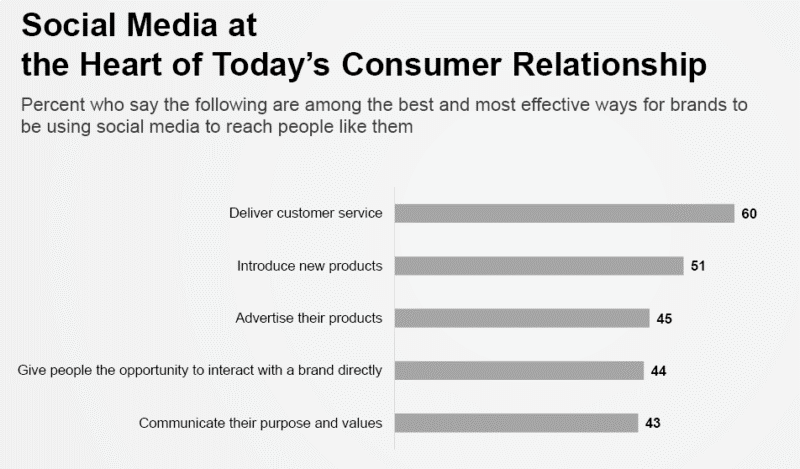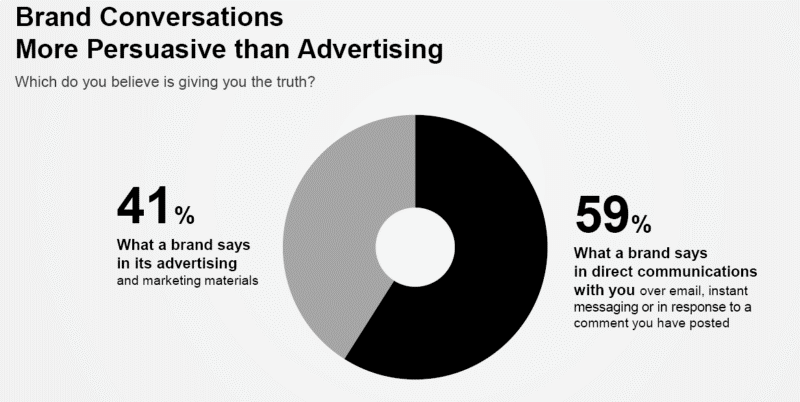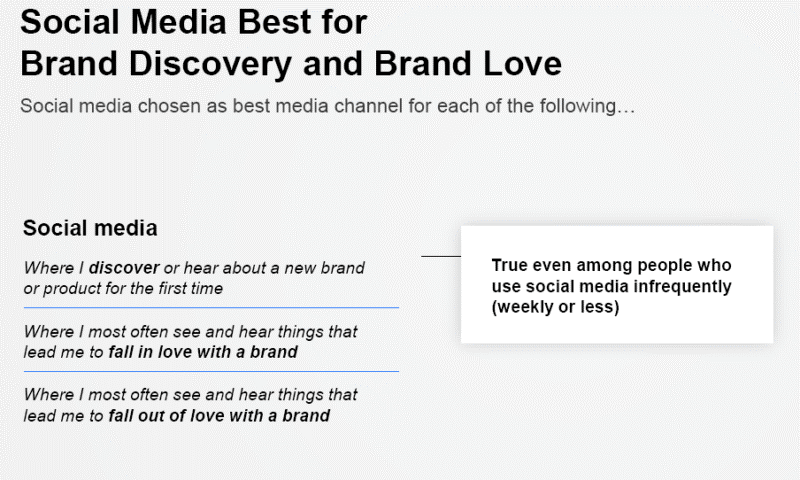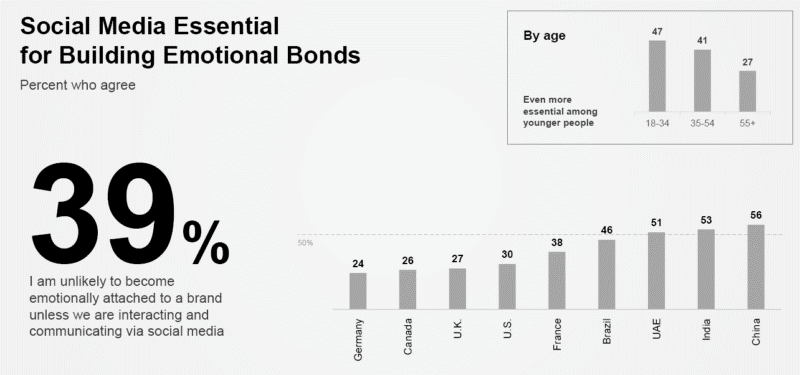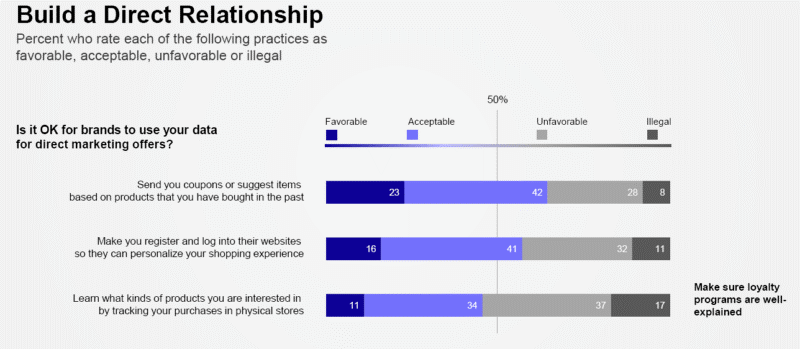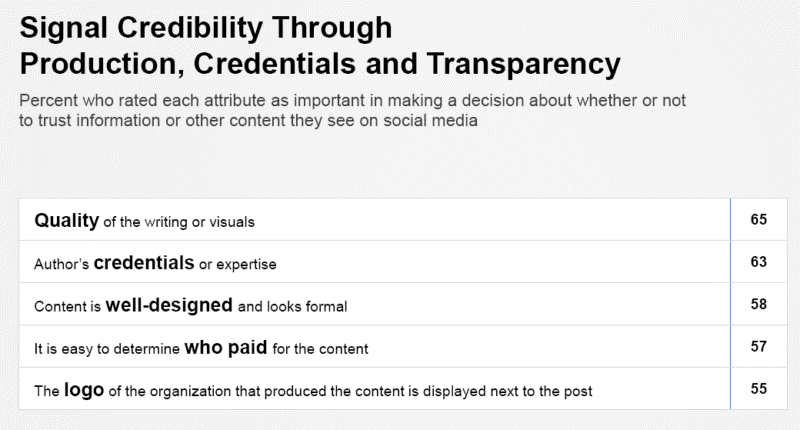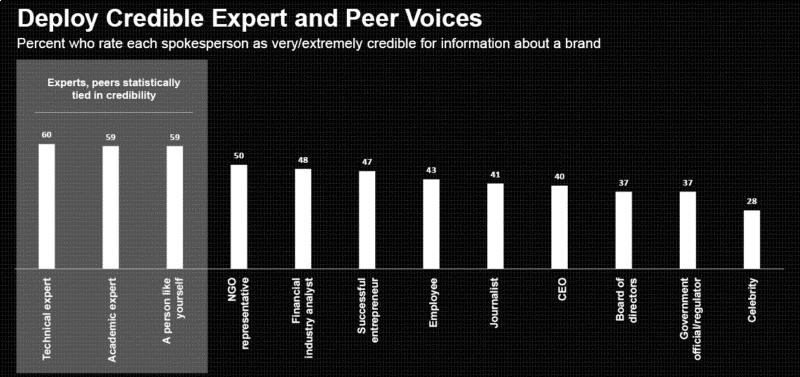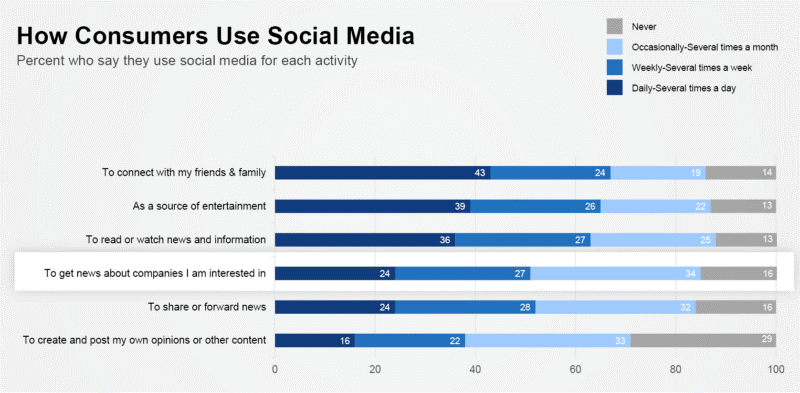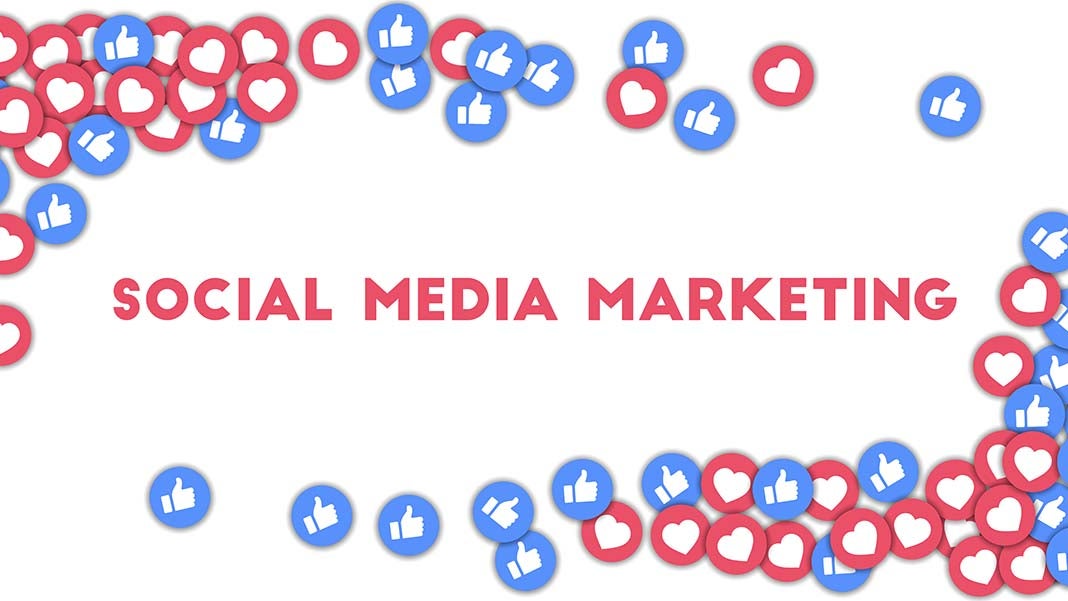
When was the last time your smaller business or nonprofit organization reviewed its social media marketing strategy and tactics?
If you answered, “never” or “not recently,” you could be wasting valuable resources on the wrong approach!
Things change so rapidly. What you’ve been doing may NOT be what you should be doing now.
I recently reviewed new data from the 2018 Edelman Trust Barometer: Special Report: Brands and Social Media. To give you a leg up, here are some important takeaways that may have a profound affect on how you’re “doing” social media marketing:
1. The most effective way to use social media to reach consumers is delivering customer service.
This study says that the best and most effective way for brands to use social media to reach consumers is delivering customer service. However, there’s other data that challenges the least effective in this graph – communicating purpose and values.
MarketingCharts noted that it contradicts an earlier study (2018 Cone/Porter Novelli Purpose Study) which found that more than three-quarters of survey respondents expect companies to go beyond just making money and positively impact society.
“Purpose is ‘more than a trendy buzzword,’ it’s a way of doing business that has the power to not only influence positive societal change but also drive company growth.”
2. Your direct conversations are more persuasive than your advertising and marketing materials.
What your brand says in emails, messaging apps, and social media comments builds more trust than advertising. What you say directly matters.
3. Social media is the best media channel for falling in and out of love with brands.
Of these choices: traditional media, search, social media, owned and online-only media, social media came out on top. Keep your brand reputation in mind every time you post.
4. Social media is important to building emotional bonds with brands.
Of the nine countries included in this research, only 39% of respondents said that they are unlikely to become emotionally attached to a brand unless interacting and communicating via social media.
Make sure that you follow your customers and respond as timely as you can.
5. Most respondents said it’s OK for businesses to use their data for direct marketing offers.
The number one offer is for coupons or suggested items based on products bought in the past. Depending on the nature of your business or organization, it may be worth testing coupons. They aren’t just for B2C (business-to-consumer) anymore.
6. Quality and transparency are important when people make decisions whether to trust the information and content you post on social media.
Ensure that your writing and visuals are top notch and the content is well designed. Professionalism counts! Skimping on this may affect your brand reputation.
If you use sponsored or paid content, make it clear. People don’t like being duped.
7. Use credible experts and peer voices as brand spokespeople, including technical and academic experts.
Take note that celebrities came in last, an interesting finding considering how many brands still use them in their campaigns. The easiest spokespeople to find are those who believe in your products, services, or mission. People trust their peers.
Lastly, I want to share this graph that showcases how people are using social media. This information can help you target your ideal audiences.
Do you think this new information is valuable to your business or nonprofit? How do you plan to use it?

